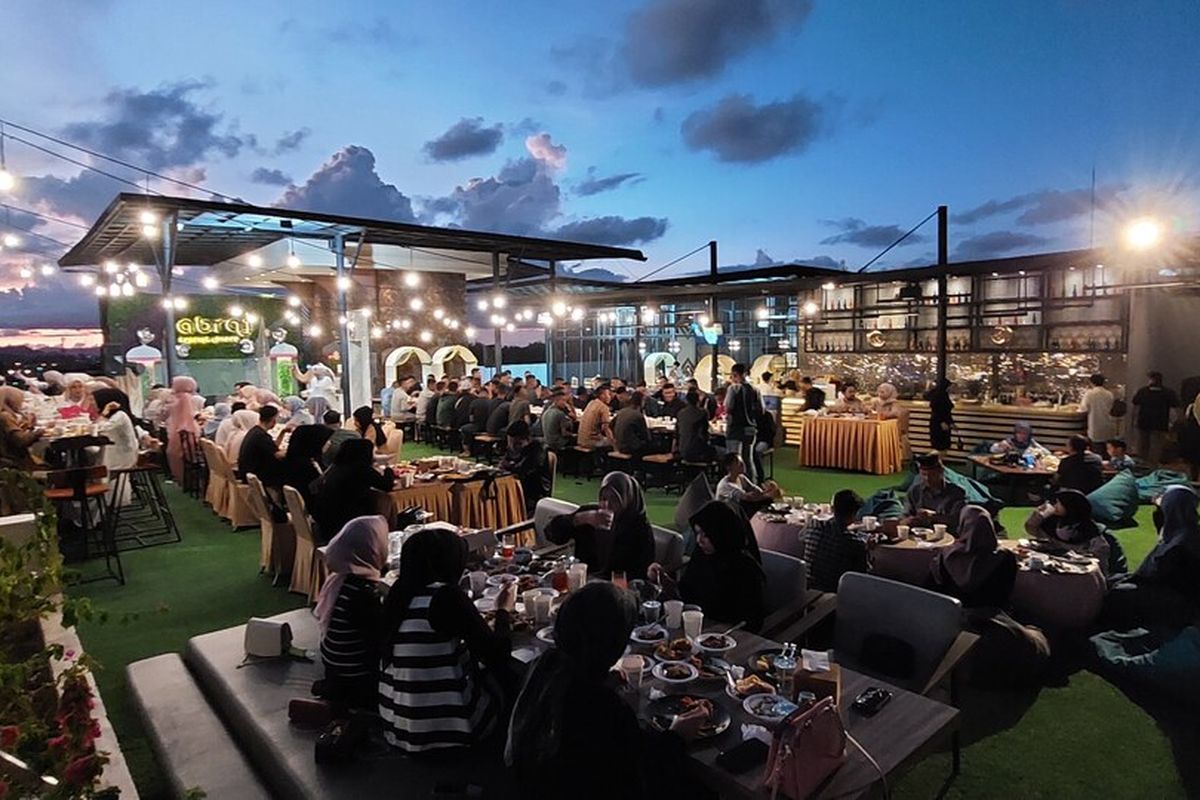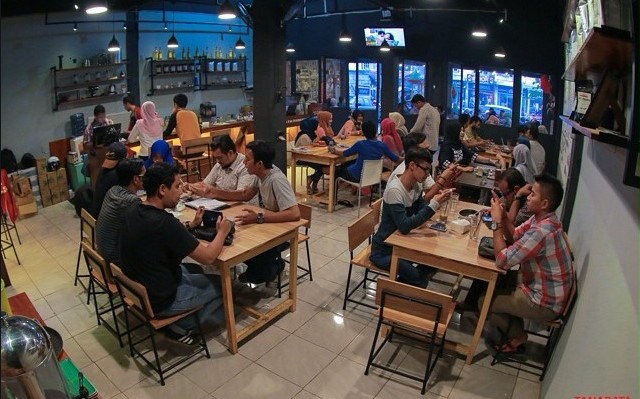ECONOMICS BEHAVIOR OF GEN-Z IN BANDA ACEH : PATTERN, INFLUENCES, IMPLICATIONS
The rapid growth of digital platforms, the emergence of e-commerce, and a global shift toward digital financial services are transforming the economic landscape in Banda Aceh. For many members of Gen Z, online shopping, digital banking, and social media-driven entrepreneurship have become everyday realities. At the same time, local traditions—such as the prioritization of halal products and the practice of charitable giving—continue to play a significant role in shaping their economic choices. This article presents a comprehensive analysis of the economic behavior of Gen Z in Banda Aceh, supported by concrete examples and real-life case studies.
The theoretical framework for this study is based on behavioral economics combined with cultural sociology. Behavioral economics explains how psychological factors and cognitive biases affect economic decisions, while cultural sociology provides insights into how traditional values and community norms shape individual behavior. Together, these frameworks help elucidate how Gen Z in Banda Aceh balances modernity with tradition.
-
Surveys and Questionnaires: A structured survey was administered to 300 Gen Z individuals across various neighborhoods in Banda Aceh. The survey covered topics such as spending habits, investment strategies, and preferred shopping channels.
-
In-depth Interviews: Ten in-depth interviews were conducted with Gen Z entrepreneurs and digital influencers in Banda Aceh to gain qualitative insights into their decision-making processes.
-
Secondary Research: Data was also collected from published reports, digital commerce studies, and articles on Islamic finance to provide context to the findings.
-
Case Studies: Real-life examples and case studies were compiled from successful Gen Z ventures and their digital behaviors, highlighting trends and illustrating practical applications of modern economic theories in a local context.
The combination of quantitative and qualitative data allowed for a comprehensive understanding of how Generation Z in Banda Aceh navigates the economic landscape.
For instance, one interviewee, a 21-year-old college student named Ahmad, shared that he regularly uses Shopee for his daily needs. He emphasized that the ability to compare prices, read reviews, and participate in flash sales is a major draw. This digital shopping behavior is not limited to urban centers; it is also evident in smaller local markets where traditional vendors have begun integrating online payment methods. This trend suggests a merging of conventional commerce with digital convenience—a blend that is particularly attractive to Gen Z consumers.
Moreover, online shopping in Banda Aceh is influenced by social media trends. Instagram and TikTok have become platforms where influencers showcase products, leading to viral marketing effects. Many young consumers rely on influencer recommendations before making a purchase. For example, a popular local influencer recently reviewed a new halal-certified skincare line on TikTok, sparking a surge in online orders among their followers. Such instances illustrate the power of digital media in shaping spending habits.
A vivid example is the growing café culture in Banda Aceh. Cafés are not just places for a quick cup of coffee but have become social hubs where young people gather to work, study, and socialize. These venues often provide free Wi-Fi, aesthetically pleasing environments, and themed decor that appeals to Gen Z’s desire for unique experiences. Spending on such experiences is seen as an investment in one’s social capital and online identity.
Furthermore, Gen Z’s preference for sustainable and ethical consumption is notable. Many young consumers actively seek products that are environmentally friendly or socially responsible. This shift is partly due to increased global awareness of environmental issues and a desire to support local businesses that adhere to ethical practices. For example, some Gen Z entrepreneurs in Banda Aceh have launched eco-friendly fashion brands that promote the use of recycled materials and traditional craftsmanship, thus preserving local heritage while addressing environmental concerns.
One of the most popular digital banking options among Gen Z in Banda Aceh is Jenius, which offers user-friendly interfaces and advanced financial management features. Users appreciate the ability to track expenses, set savings goals, and even invest in mutual funds through the app. For many, these digital tools have demystified the world of finance, making it easier to start saving at a young age.
Investment practices among this demographic also show a shift toward riskier, yet potentially high-reward, assets. A number of Gen Z individuals have ventured into cryptocurrency trading and stock market investments using platforms such as Binance and Ajaib. One notable case is that of Siti, a 23-year-old entrepreneur who began investing in cryptocurrencies during the global market dip. Her willingness to experiment with digital assets, despite the inherent risks, exemplifies a broader trend among Gen Z towards embracing innovative financial instruments.
Nevertheless, there remains a strong adherence to Islamic finance principles. Many young investors prefer halal investment products that avoid interest-based loans and ensure ethical business practices. Islamic banks and fintech solutions that offer Sharia-compliant products are particularly attractive to this group. This dual approach—balancing modern financial strategies with religious considerations—highlights the complexity of Gen Z’s economic decisions in Banda Aceh.
A prime example is the rise of online stores that sell locally produced products. Many Gen Z entrepreneurs are capitalizing on social media platforms like Instagram and Facebook to market unique products such as traditional textiles, artisanal crafts, and modern fashion items that fuse local aesthetics with global trends. These businesses not only cater to domestic consumers but also reach international markets through e-commerce platforms.
In addition to traditional product-based businesses, content creation has emerged as a viable entrepreneurial avenue. Many young individuals in Banda Aceh have become successful YouTubers, TikTokers, and bloggers. Their content ranges from lifestyle vlogs and product reviews to educational tutorials and local cultural narratives. By monetizing their online presence through advertisements, sponsorships, and brand partnerships, these influencers are turning passion into profit. For example, a popular local TikTok influencer who focuses on street food reviews has collaborated with local vendors to create limited-edition products, further blurring the lines between content creation and commerce.
Freelancing is another area where Gen Z in Banda Aceh has excelled. Digital freelancing platforms such as Upwork and Fiverr have provided opportunities for young people with skills in graphic design, programming, and content writing to offer their services globally. The flexibility of freelancing not only allows them to earn income on their own terms but also to gain exposure to international markets and professional networks.
Another cultural practice that significantly influences economic behavior is the tradition of charity, particularly through zakat (obligatory almsgiving) and sadaqah (voluntary charity). Many Gen Z individuals feel a strong social responsibility to give back to their community. This is evident not only in regular charitable donations but also in the popularity of social enterprises that reinvest profits in community development. For instance, some young entrepreneurs have established businesses with a social mission, such as employing underprivileged youth or donating a portion of profits to local causes. This approach reinforces the idea that economic success should go hand in hand with social responsibility.
Additionally, many Gen Z consumers in Banda Aceh are cautious about engaging with interest-based financial products. Instead of conventional bank loans, they show a preference for Islamic financial instruments that avoid riba (interest) and promote profit-and-loss sharing arrangements. This avoidance is not merely a reflection of religious doctrine but also a pragmatic response to financial risk management, as many young individuals see the benefits of alternative financial products that better align with their ethical and cultural values.
Another challenge is the tension between rapid globalization and the preservation of local culture. As Gen Z becomes increasingly connected to global trends, there is a risk that traditional values may be overshadowed by a more homogenized global consumer culture. However, this same dynamic also presents an opportunity. Local entrepreneurs and policymakers have the chance to promote a hybrid economic model that embraces global technological advances while celebrating and preserving local traditions and religious practices.
Government and private sector collaboration is crucial in addressing these challenges. Investment in digital infrastructure and targeted financial education programs can help bridge the digital divide. Additionally, initiatives that support Sharia-compliant financial products and ethical business practices can reinforce the balance between modernity and tradition, ensuring that Gen Z in Banda Aceh is equipped to navigate a rapidly evolving economic landscape.
-
Digital-First Approaches: Companies should invest in robust digital platforms to facilitate seamless online transactions and personalized marketing campaigns.
-
Cultural Sensitivity: Products and services need to reflect local cultural and religious values. For instance, ensuring that offerings are halal-certified or ethically sourced can build trust among young consumers.
-
Innovation and Adaptability: Given Gen Z’s preference for innovative solutions, businesses should continuously explore new technologies such as mobile apps, digital wallets, and social media engagement tools.
For policymakers, supporting this emerging economic behavior involves:
-
Improving Digital Infrastructure: Expanding internet access and enhancing digital payment systems can ensure that economic opportunities are distributed more evenly.
-
Financial Literacy Programs: Education initiatives that focus on digital banking, investment strategies, and ethical finance can empower young consumers to make informed financial decisions.
-
Regulatory Support: Developing policies that encourage Sharia-compliant financial products and protect consumer rights in the digital marketplace is essential for fostering trust and stability.
One of the most striking aspects of this behavior is the balance between risk and caution. Gen Z’s willingness to experiment with cryptocurrencies and digital investments is tempered by a cautious approach to traditional interest-based financial products. This duality illustrates the complexity of modern economic decision-making in a rapidly changing environment. Furthermore, the entrepreneurial spirit that pervades this demographic demonstrates an ability to leverage digital tools for economic empowerment, even in the face of infrastructural challenges.
The role of social media in shaping economic behavior cannot be overstated. With platforms like Instagram and TikTok acting as both marketplaces and sources of inspiration, young consumers in Banda Aceh are redefining what it means to be a modern entrepreneur. Influencers and content creators are not just marketing products; they are building communities and creating economic ecosystems that thrive on authenticity, creativity, and social connection.
Moreover, the influence of cultural and religious values provides a counterbalance to the potential excesses of consumerism. By prioritizing ethical consumption and community welfare, Gen Z in Banda Aceh is carving out a unique niche that blends modern economic practices with centuries-old traditions. This balance is not only beneficial for local communities but also offers a model for other regions where similar dynamics exist.
The research outlined in this paper suggests that the economic trends among Gen Z in Banda Aceh will have far-reaching implications for the future of local commerce and finance. As digital technologies continue to advance, and as globalization accelerates, it is imperative for businesses and policymakers to adapt to the evolving needs of this dynamic generation. By embracing a hybrid economic model—one that integrates digital innovation with cultural sensitivity—Banda Aceh can not only foster economic growth but also preserve the unique identity that defines its community.
The case studies and examples provided in this article underscore that the economic behavior of Gen Z in Banda Aceh is more than just a trend; it is a reflection of a broader transformation in how economic decisions are made in a connected, yet culturally diverse, world. Future research should continue to explore the long-term impacts of these changes and how they might influence economic policies, entrepreneurial opportunities, and cultural preservation strategies.
This comprehensive exploration, supported by detailed examples and case studies, has provided an in-depth look at the evolving economic behavior of Gen Z in Banda Aceh. The findings suggest that understanding this dynamic generation is key to unlocking future economic potential, not only in Banda Aceh but also in other communities where the forces of globalization and tradition intersect.


0 Response to "ECONOMICS BEHAVIOR OF GEN-Z IN BANDA ACEH : PATTERN, INFLUENCES, IMPLICATIONS"
Post a Comment